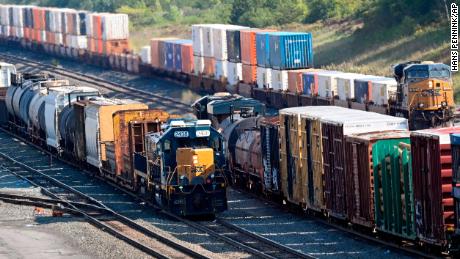The combined railroad companies and their respective labor unions officially reached a handshake deal Thursday morning, effectively halting the strike that was expected to threaten the still-recovering U.S. economy.
The long-running negotiations kicked off early Wednesday morning and were carried out by Labor Secretary Martin Walsh. They ended up leading to an agreement that will now head over to the union members for an official vote. All the while, the unions have made an agreement to not go on strike as they wait.
“The tentative agreement reached tonight is an important win for our economy and the American people,” exclaimed President Joe Biden. “It is a win for tens of thousands of rail workers who worked tirelessly through the pandemic to ensure that America’s families and communities got deliveries of what have kept us going during these difficult years.”
The unions taking part in the negotiations include the massive International Association of Machinists and Aerospace Workers, the Brotherhood of Locomotive Engineers and Trainmen, and SMART Transportation Division.
Despite the White House not unveiling many details regarding the deal thats in the works, the Association of American Railroads stated it sports a 24% pay increase across the period covering 2020-2024, with an over $11,000 retroactive payout.
The agreement was finally brokers just as the Friday deadline drew dangerously close. That is when a government mandates “cooling off” time was slated to end, and when a strike could have officially kicked off.
One railroad company, Union Pacific, hailed the deal.
“We look forward to the unions ratifying these agreements and working with employees as we focus on restoring supply chain fluidity,” expressed the company in a release.
Over a third of the total U.S. Feight is moved via rail, and an interruption could end up costing the economy a stagging two billion dollars per day, as reported by an analysis sent out by the Association of American Railroads. Bottlenecks within the supply chain that have been driven by labor shortages and the governmental lockdowns set in place across the globe have impacted the economy in America quite harshly over the past few years, leading to rising inflationary stresses as consumer goods continue to fail to teach store shelves.
Any strike from the railroad unions could have ended up not just hurting freight carries, but also Amtrak, which utilizes the same tracks as the haulers and had already taken steps to cancel its long-distance routes to prepare for a seemingly inevitable strike that could have left passengers stranded. The passenger train system is slated to restore these routes soon.

